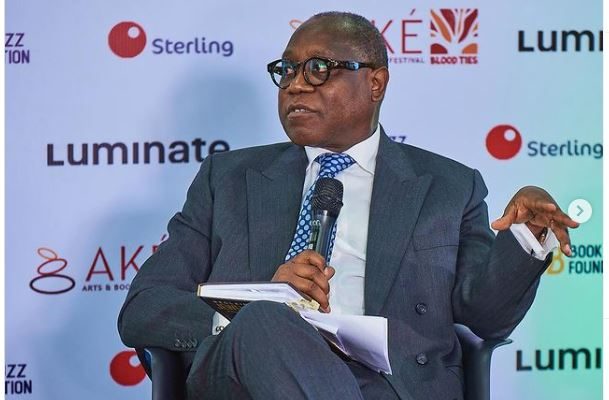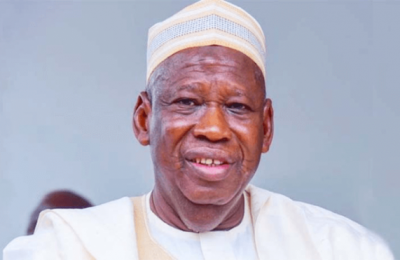
The former minister of finance, under former President Goodluck Jonathan, Olusegun Aganga, has explained why Nigeria and Nigerians are not where they should be irrespective of the country’s numerous resources and potential.
Aganga, who is also the former minister of industry, trade and investments, and the former chairman of the World Bank made this known during a book chat session with Joseph Ike (a psychotherapist and a creative arts enthusiast) at the recently concluded 2023 Ake Festival in Lagos.

While discussing his recently published book ‘Reclaiming the Jewel of Africa: A Blueprint for Taking Nigeria and Africa from Potential to Posterity’, Aganga lamented and questioned why Nigeria – which is ranked among the top 15 oil-producing countries in the world, has about 44 solid minerals in commercial quantities, 91 million hectares of land where anything can be grown, and a population that is the envy of the world – is still, irrespective of these potentials, what is it today.
“When you speak to people about Nigeria, you will get different answers. Some will say the problem is leadership, others will say it is corruption. But I have been in and out of government. I know it is more than that,” he said.
He further said only a few people talk about the causes of the problems in Nigeria and how to solve them, adding that his book addresses the problems and offers solutions to them.
While discussing in detail the 10-chapter, 298-page book published by Practical Inspiration Publishing, Aganga spoke extensively on the political and governance structure of Nigeria; the political, economic, and social sectors of the country; the civil service; people and resource management; poverty, unemployment, and insecurity; among others.
The former minister − while addressing the issues of leadership − said that democracy, the way it is believed and practised in Nigeria, is not working for Nigerians. He said that Nigeria has been operating a hybrid democracy/regime since 1999, which he described as operating a democracy and an authoritarianism at the same time.
He further said that elections in Nigeria are determined by money, religion, and tribe, adding that the democracy that is practised in the country is a government of the political class, by the political class, and for the political class.
Aganga also extensively spoke about the social institutions, which he said comprised the education, health, and family systems. He said the Nigerian institutions are weak because the majority of people erroneously think that the dividends of democracy are to offer jobs to political party faithful, instead of offering good governance.
“The book has about 145 recommendations in it. So, the whole idea is to provide a road map. And I know that if Nigeria does well, Africa will do well,” he added.
Aganga emphasised that for Nigeria to be great and be where it ought to be among the comity of nations, the value system, the civil service, and the institutions have to be strengthened by attracting and retaining the best.
Some of the questions Aganga answered from the audience included, but were not limited to, what he would do differently if he were to be the minister of finance gain; how he can incentivise and encourage the political class and elite to key into some of the recommendations in his book; if he would have imagined that the value of the naira would be in the dire situation it currently is; what it would take Nigeria to believe and invest in the African Continental Free Trade Area (AfCFTA); the effect of military rule on the psych of Nigerians and how to restore the eroding value system; and if a one-child policy would work in Nigeria.
READ ALSO FROM NIGERIAN TRIBUNE







